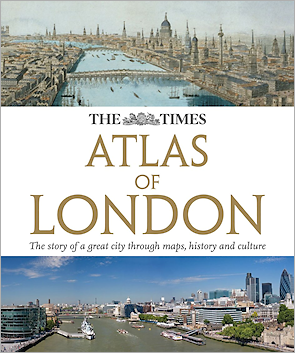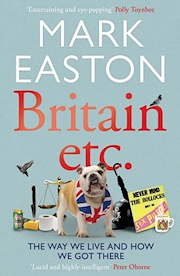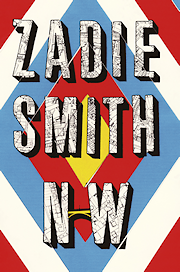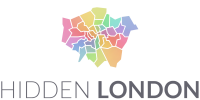Books
Recommended books
Apologies, this page is presently out-of date and it may be a while before that situation is rectified

For lovers of the story of London, the publishing event of late 2011 was the launch of a new edition of The Times Atlas of London. Over the years, this excellent work has been in and out of print, and variously marketed as a historical atlas, then as a history and now as an atlas. It’s hard to understand why the ‘historical’ part has been dropped from the title of the latest version, because the capital’s evolution over the centuries is central to this beautifully produced volume. In addition to its many maps, the book is also crammed with photographs, especially aerial views.
Another wonderful history of London in maps is Joe Brown’s London Railway Atlas, now in its third edition. It’s highly recommended not just to rail enthusiats but to anyone who wants to understand the way the capital has evolved and how its disparate parts are joined up.
Guidebooks
Unlike the Hidden London website, most guidebooks understandably concentrate on the city centre and the more popular destinations for excursions, like Hampstead or Hampton Court. Time Out: London is one of the best, and the most up-to-date.
Chambers London Gazetteer (by the author of this website) includes every locality in Greater London, from Coulsdon in the south to Crews Hill in the north; from Harmondsworth in the west to Hornchurch in the east. However, it’s now out of print, so it may be hard to find. The locality articles here on Hidden London are taken from the London Gazetteer, with numerous adaptations and updates.
Books about Londoners, the English and the British
Londoners, Craig Taylor’s recent anthology of ‘the voices of London’, has been a surprise bestseller. As the blurb says: “From the woman who is the voice of the London Underground to the man who plants the trees along Oxford Street; from a Muslim currency trader to a guardsman at Buckingham Palace; from the marriage registrar at Westminster town hall to the director of the biggest Bethnal Green funeral parlour – together, these voices and many more, paint a vivid, epic and wholly fresh portrait of twenty-first century London.”

For a broader examination of the British people, Britain etc., by the BBC’s Home Editor Mark Easton, is highly recommended. Meticulously researched but accessible essays take a look at the UK through its relationship to 26 subjects – one for each letter of the alphabet. With each lettered chapter, the reader is invited to observe the United Kingdom in a new way: standing back to see the nation in a global or historical context, and then diving down to scrutinise some fascinating and insightful details.
You might also like to consider Kate Fox’s Watching the English: The Hidden Rules of English Behaviour, Jeremy Paxman’s The English and (if you haven’t yet read it) Bill Bryson’s classic Notes From A Small Island.
Other London non-fiction
For an academic perspective, the The London Encyclopaedia is unbeatable, but it doesn’t cover some of the most obscure suburban localities discussed on this website.
Brewer’s London Phrase and Fable is arguably the ultimate compendium of London information, past and present, serious and frivolous. From the Bloomsbury Group to the Camberwell carrot and Oranges and Lemons to apples and pears (as the blurb says), no other book about London can offer such breadth and diversity of content, including people, places, events, culture, anecdotes, slang and catchphrases. Admittedly, however, the dictionary is also the work of the author of this website, so there may be some bias in this recommendation.
Richard Guard’s Lost London is “An A–Z of forgotten landmarks and lost traditions.” It’s been a bestseller in Kindle format for several months – although its success was driven by very aggressive price-cutting that now seems to have ceased.
Other excellent non-fiction works include Roy Porter’s London: A Social History, Barry Miles’s, London Calling: A Countercultural History of London Since 1945 and Dan Cruickshank’s, The Secret History of Georgian London: How the Wages of Sin Shaped the Capital.
Fiction
Several novels explore the localities of London in distinctive ways, from GK Chesterton’s The Napoleon of Notting Hill to Geoff Nicholson’s Bleeding London. Two essential reads are Michael Moorcock’s Mother London and Martin Amis’s London Fields. London’s best contemporary writers of both fiction and non-fiction are Peter Ackroyd and Iain Sinclair, though both have quirky styles that won’t suit all tastes.

Charles Dickens is almost universally acknowledged as London’s greatest writer and yet many modern Londoners are deterred by the sheer bulk of his books. But pick one up and you may find it hard to put down. Our Mutual Friend is especially recommended. But if you’d prefer a 21st-century take on life in the metropolis, try David Thewlis’s painfully funny The Late Hector Kipling.
John Lanchester’s Capital has been hailed as a State of the Nation (or at least a State of the Metropolis) novel for the 21st century. “Brimming with perception, humane empathy and relish, its portrayal of this metropolitan miscellany is, in every sense, a capital achievement”, said Peter Kemp in The Sunday Times, while The Times chose it as a Book of the Week.
After a gap of seven years Zadie Smith has produced another sweeping exploration of multicultural life in north-west London, following the simultaneously tangled and divergent lives of four people in their 30s who were all born on the same Willesden council estate. The Observer called it “flawed, fragmentary and undeniably brilliant … a universe away from the roaring, schematic books of her male counterparts.” NW immediately entered the bestsellers list on its publication at the end of August 2012.
